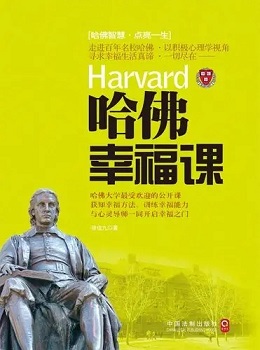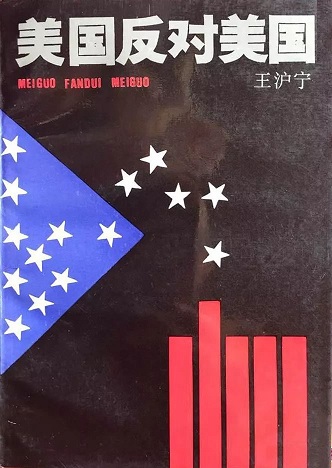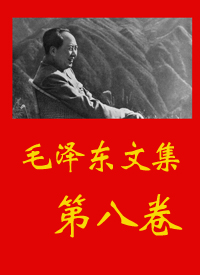Eight or nine years after the events narrated in the second part of this story, people noticed on the Boulevard du Temple, and in the regions of the Chateau-d'Eau, a little boy eleven or twelve years of age, who would have realized with tolerable accuracy that ideal of the gamin sketched out above, if, with the laugh of his age on his lips, he had not had a heart absolutely sombre and empty. This child was well muffled up in a pair of man's trousers, but he did not get them from his father, and a woman's chemise, but he did not get it from his mother. Some people or other had clothed him in rags out of charity. Still, he had a father and a mother. But his father did not think of him, and his mother did not love him.
He was one of those children most deserving of pity, among all, one of those who have father and mother, and who are orphans nevertheless.
This child never felt so well as when he was in the street. The pavements were less hard to him than his mother's heart.
His parents had despatched him into life with a kick.
He simply took flight.
He was a boisterous, pallid, nimble, wide-awake, jeering, lad, with a vivacious but sickly air. He went and came, sang, played at hopscotch, scraped the gutters, stole a little, but, like cats and sparrows, gayly laughed when he was called a rogue, and got angry when called a thief. He had no shelter, no bread, no fire, no love; but he was merry because he was free.
When these poor creatures grow to be men, the millstones of the social order meet them and crush them, but so long as they are children, they escape because of their smallness. The tiniest hole saves them.
Nevertheless, abandoned as this child was, it sometimes happened, every two or three months, that he said, "Come, I'll go and see mamma!" Then he quitted the boulevard, the Cirque, the Porte Saint-Martin, descended to the quays, crossed the bridges, reached the suburbs, arrived at the Salpetriere, and came to a halt, where? Precisely at that double number 50-52 with which the reader is acquainted-- at the Gorbeau hovel.
At that epoch, the hovel 50-52 generally deserted and eternally decorated with the placard: "Chambers to let," chanced to be, a rare thing, inhabited by numerous individuals who, however, as is always the case in Paris, had no connection with each other. All belonged to that indigent class which begins to separate from the lowest of petty bourgeoisie in straitened circumstances, and which extends from misery to misery into the lowest depths of society down to those two beings in whom all the material things of civilization end, the sewer-man who sweeps up the mud, and the ragpicker who collects scraps.
The "principal lodger" of Jean Valjean's day was dead and had been replaced by another exactly like her. I know not what philosopher has said: "Old women are never lacking."
This new old woman was named Madame Bourgon, and had nothing remarkable about her life except a dynasty of three paroquets, who had reigned in succession over her soul.
The most miserable of those who inhabited the hovel were a family of four persons, consisting of father, mother, and two daughters, already well grown, all four of whom were lodged in the same attic, one of the cells which we have already mentioned.
At first sight, this family presented no very special feature except its extreme destitution; the father, when he hired the chamber, had stated that his name was Jondrette. Some time after his moving in, which had borne a singular resemblance to the entrance of nothing at all, to borrow the memorable expression of the principal tenant, this Jondrette had said to the woman, who, like her predecessor, was at the same time portress and stair-sweeper: "Mother So-and-So, if any one should chance to come and inquire for a Pole or an Italian, or even a Spaniard, perchance, it is I."
This family was that of the merry barefoot boy. He arrived there and found distress, and, what is still sadder, no smile; a cold hearth and cold hearts. When he entered, he was asked: "Whence come you?" He replied: "From the street." When he went away, they asked him: "Whither are you going?" He replied: "Into the streets." His mother said to him: "What did you come here for?"
This child lived, in this absence of affection, like the pale plants which spring up in cellars. It did not cause him suffering, and he blamed no one. He did not know exactly how a father and mother should be.
Nevertheless, his mother loved his sisters.
We have forgotten to mention, that on the Boulevard du Temple this child was called Little Gavroche. Why was he called Little Gavroche?
Probably because his father's name was Jondrette.
It seems to be the instinct of certain wretched families to break the thread.
The chamber which the Jondrettes inhabited in the Gorbeau hovel was the last at the end of the corridor. The cell next to it was occupied by a very poor young man who was called M. Marius.
Let us explain who this M. Marius was.
在本故事第二部分谈到的那些事发生后的八年或九年左右,人们在大庙路和水塔一带,时常看见一个十一二岁的男孩,嘴边带着他那样年纪所常有的笑容,心里却是绝对的苦闷和空虚,如果不是那样,他便相当正确地体现了我们在前面勾画过的那种野孩的形象了。那孩子确也穿着一条大人的长裤,但不是他父亲的,也披着一件妇女的褂子,但不是他母亲的。一些不相干的人由于行善让他穿上那样的破衣烂衫。他并不是没有父母。不过他的父亲不关心他,他的母亲也毫不爱他。
这是一个值得怜悯的那种有父有母、却又是孤儿的孩子。
这孩子从来就只觉得街上才是他安身的地方。铺路的石块也不及他母亲的心肠硬。
他的父母早已一脚把他踢进了人生。
他也毫不在乎地飞走了。
那是一个爱吵闹、脸色发青、轻捷、机警、贫嘴、神气灵活而又有病态的孩子。他去去,来来,唱唱,作掷钱游戏,掏水沟,偶尔偷点小东西,不过只是和小猫小雀那样,偷着玩儿,人家叫他小淘气,他便笑,叫他流氓,便生气。他没有住处,没有面包,没有火,没有温暖,但是他快乐,因为他自由。
这种可怜的小把戏,一旦成了人,几乎总要遭受社会秩序这个磨盘的碾压,但是,只要他们还是孩子,个儿小,就可以逃过。任何一点小小的空隙便救了他们。
不过,那孩子尽管无依无靠,每隔两三个月,却也偶尔会说:“哎,我要去看看妈妈!”于是他离开了大路、马戏场、圣马尔丹门,走下河沿,过了桥,进了郊区,走过妇女救济院,到了什么地方呢?恰恰是读者所熟悉的那道双号门,五○一五二号,戈尔博老屋。
五○一五二号那所破屋经常是空着的,并且永远挂着一块牌子,上面写着“房间出租”。这时,说也奇怪,却有几个人住在那里,那几个人,彼此并且毫无来往,毫无关系,那也是巴黎常有的事。他们全属于那种赤贫阶级,以原就极为潦倒、继又逐步从苦难陷入苦难、一直陷到社会底层的小市民开始,并以清除污泥的阴沟工人和收集旧衣烂衫的破布贩子这两种得不到文明好处的职业告终。
冉阿让时期的那个“二房东”已经死了,接替她的是个同一类型的家伙。我不知道哪个哲学家说过:“老太婆是从来不缺的。”
这个新来的老妇人叫毕尔贡妈妈,她一生中有过三只鹦鹉,先后统治着她的灵魂,除此之外,再没有其他值得一提的事。
在那破房子的住户中,最穷苦的是户四口之家,父亲、母亲和两个已经相当大的女儿,四个人同住在一间破屋里,一间我们已经谈到过的破屋子。
这人家,乍一看。除了那种一贫如洗的窘相外,似乎也没有什么很特殊的地方,那个家长,在开始租用那间屋子时,自称姓容德雷特。他搬家的情形和那二房东所说的一句耐人咀嚼的话象得出奇,是“啥也没有搬进来”,我们在此把那句话借用一下。定居后不久,这容德雷特曾向那看门、扫楼梯、同时又是住户中资格最老的妇人说:“我说妈妈,万一有什么人来找一个波兰人或意大利人或西班牙人,那就是我啊。”
这一家便是那快乐的赤脚小孩的家。他到了那里,看见的只是穷相、苦相,更难受的是见不着一点笑容,他感到的只是炉膛里的冷气和亲人心里的冷气。他走进去时别人问他:“你从哪里来?”他回答说:“从街上来。”他离开时别人问他:“你到哪里去?”他回答说:“到街上去。”他母亲还对他说:“你来这儿干什么?”
那孩子就这样生活在缺乏爱的状态中,有如地窖中萎黄的草。他并不因此感到伤心,也不埋怨任何人。他根本不知道父母究竟应当是怎样的。
尽管如此,他母亲是爱他的两个姐姐的。
我们忘了交代,在大庙路上,人们管那孩子叫小伽弗洛什。他为什么叫伽弗洛什呢?很可能是因为他父亲叫容德雷特。
断绝骨肉关系好象是某些穷苦人家的本能。
容德雷特在那所破屋里住的房间是过道底里最后的那间。在它隔壁的那间小房里住着一个极穷的青年男子,叫马吕斯先生。
我们来谈谈这马吕斯先生是什么人。







